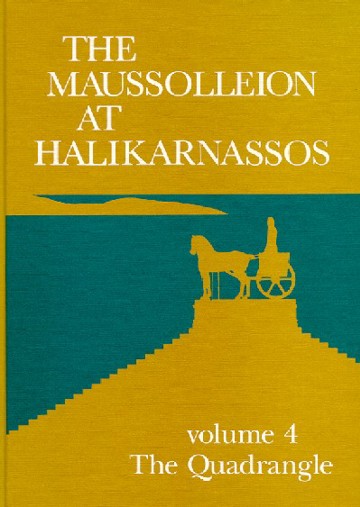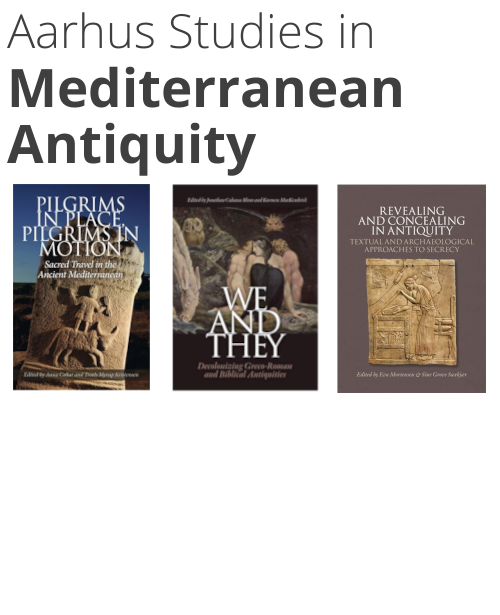
The Maussolleion at Halikarnassos. Reports of the Danish Archaeological Expedition to Bodrum
4. The Quadrangle
A part of the series Jysk Arkæologisk Selskabs Skrifter (15) , and the subject area Archaeology (classical)
More about the book
About the book
Under the auspices of the British Museum, C.T. Newton started excavations in 1857 on the site of one of the Seven Wonders of the World, the sepulchral monument to the Carian ruler, Maussollos.
This volume describes the foundations of the Mausolleion laid within the large, rectangular cutting in the bedrock and named 'the quadrangle' by Newton.
In addition to architectural evidence of basic importance, its re-excavation by the Danish expedition in the years 1970-77 brought to light remains of Maussollos' tomb chamber and its treasures, among these the ornaments of gold plate and beads of semi-precious stones published in the present volume.
For purchases outside of Denmark:
If you are located in the USA or Canada, please contact our US distributor, Longleaf Services, at orders@longleafservices.org or +1 919-503-6590.
For purchases in all other countries, you can find the title through our global distributor, The Mare Nostrum Group, here: https://mngbookshop.co.uk
Table of contents
Preface
Introductory Note on Illustrations
1. The Quadrangle
2. The drainage system around the Maussolleion ("Lower Gallery")
3-5. Accessory structures built along the periphery of the Quadrangle
6. Features of the superstructure deducible from the surviving foundations and pillars
7. The situation of the foundations of the Maussolleion with regard to its surroundings
8. The platform in front of the entrance to the tomb chamber
9. The bronze grating said to have covered the drain crossing the western staircase
10. The plug-block that closed the entrance to the tomb
11. Collars and dowels from the bottom of the plug-block, British Museum
12. Two sawn-off corners of pavement slabs with collars still in position, British Museum
13. The foundations around and above the plug-block
14. The corridor
15. The double-door of white marble, summary of evidence for its reconstruction
16. Catalogue of door fragments A-R
17. The anteroom and its connection with the tomb chamber
18. The tomb chamber
19. The sarcophagus lid of white marble, summary of evidence for its reconstruction
20. Catalogue of fragments of sarcophagus lids from Bodrum (a-d) and Kos (e)
21. The tomb-robbers' subterranean mine
22. The cavity cut in the rock-cut bottom of the tomb chamber, date and purpose
23. Catalogue raisonné of finds from the cavity in the tomb chamber (cf. chapter 22) and from the tomb-robbers' mine (cf. chapter 21)
24. Provisional report of recent investigations into Pre-Maussollan remains underneath and south of the Maussolleion
25. Geological aspects of the construction of the Mausoleum at Halicarnassus
26. Excerpts from C.T. Newton, a History of Discoveries (1862)
27. Commander de la Tourrette's report on the demolition of the Maussolleion AD 1522
28. Comparanda relatable to the fragments of a double-door and a sarcophagus lid found in the Maussolleion foundations
Notes
Bibliography
Press reviews
Frank Rumscheid Gnomon, Kritische Zeitschrift für die gesamte klassische Altertumswissenschaft
"Insgesamt bietet der Band eine grundlegende Erstpublikation solider archäologischer Forschung im Bereich des Maussolleions. Mehr noch: Einige Ergebnisse führen dazu, langgepflegte Forschungsmeinungen zur vormaussolleischen Nutzung des Areals und zu den Umständen der Haupstadtverlegung unter Maussolos neu zu überdenken."




